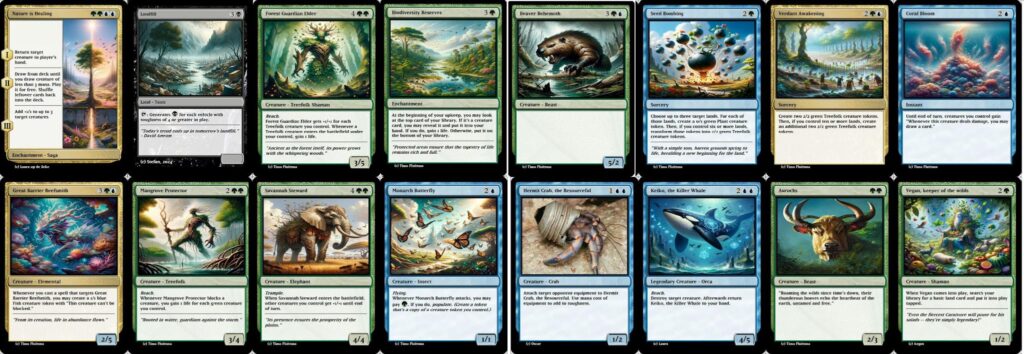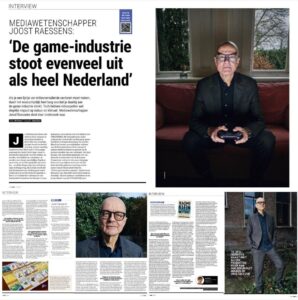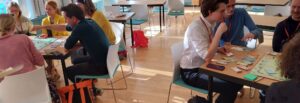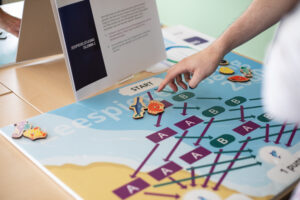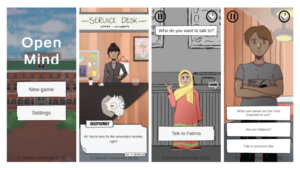
On April 16, 2024, the Utrecht Game Lab organized a first pilot workshop to test the concept of ‘franchise hacking’ by playtesting and co-designing custom cards and decks for Magic: The Gathering with participants to explore the potential benefits of the technique for climate communication and education. Sample materials and documentation will be published on the project website soon; see Game Lab for updates.

If you’re familiar with trading card games, you might already know about vintage trading cards being auctioned for millions or the collaboration between Pokémon and the Van Gogh Museum, which resulted in utter mayhem. Such incidents highlight not only the deep passion fans hold for these collectibles but also underscore the significant cultural impact and widespread appeal of trading card games. At the crossroads of collectability, strategic depth, and expansive lore, trading card games like Magic: The Gathering (MtG) have transitioned from niche hobbies to major mainstream phenomena.
Magic: The Gathering (MtG), launched in 1993 by the company Wizards of the Coast, has amassed a significant player base over the years. MtG ingeniously positions itself not by employing transmedia franchising directly, but by serving as a platform where other franchises can expand through this method. Transmedia franchising, a concept popularized by media theorists Henry Jenkins and Derek Johnson, involves extending a single story, world or theme across multiple platforms, weaving a richer, more immersive narrative universe that enhances the original content. Utilising this approach, MtG has included partnerships themed around iconic narratives such as Lord of the Rings and Dungeons and Dragons, as well as more contemporary story worlds like Fortnite and The Walking Dead. Each collaboration is designed to merge MtG’s rich, strategic gameplay with the distinctive worlds and elements of these varied franchises, thereby attracting fans from different fandoms and enhancing the game’s universal appeal.
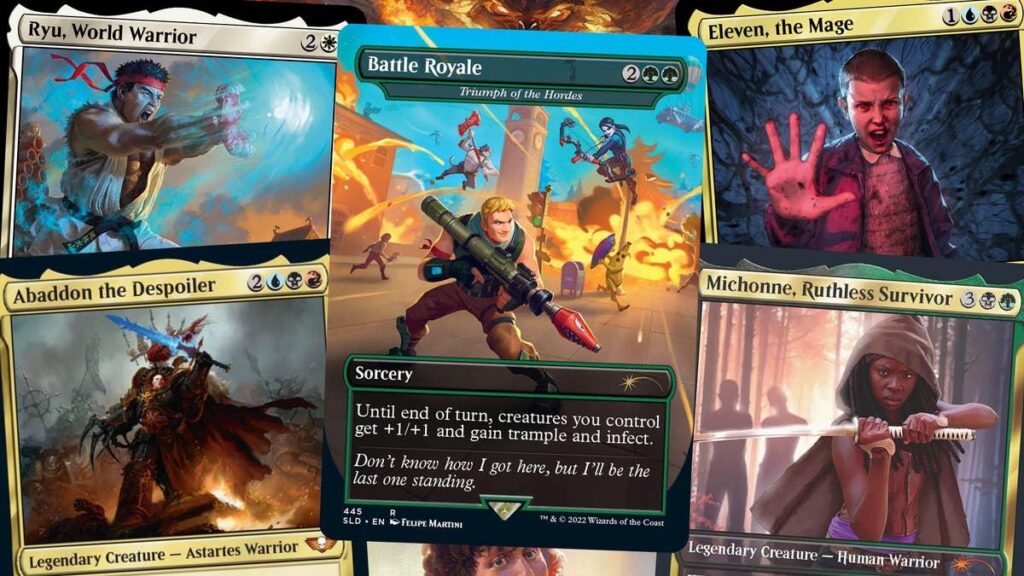
While Magic: The Gathering has masterfully incorporated narratives from various franchises, creating a vast multiverse of story worlds that have broadened its player base, our project aims to — by leveraging the game’s rich language familiar to fans — tap into this universe and its fandom to explore real-world themes like sustainable futures and interspecies relations. Drawing on previous work by Chloé Germaine and Paul Wake on ‘hacking’ individual board games, we aim to ‘hack’ this franchise, not to detract from its core mechanics or gameplay but to thread an urgent narrative focused on environmental preservation and sustainability into the core of the game’s experience.
Franchise hacking seeks to hijack the core mechanics of a franchise to narrate fresh stories, engaging deeply with the game’s language — a language that the fan base comprehends and appreciates intimately. By subtly modifying flavour texts, names, mechanics, strategies, goals, and artwork, we craft our own cards (SAMPLE), thereby sculpting a new story world that draws attention to real-world ecological phenomena and challenges. In doing so, we ensure that pressing real-world narratives find a voice within the realm of popular media, effectively communicating through its vernacular. This strategy enables us to connect with a broad audience, introducing them to narratives about non-anthropocentric thinking, the significant human impacts on our environment, the scarcity of natural resources, and the envisioning of alternative sustainable futures.
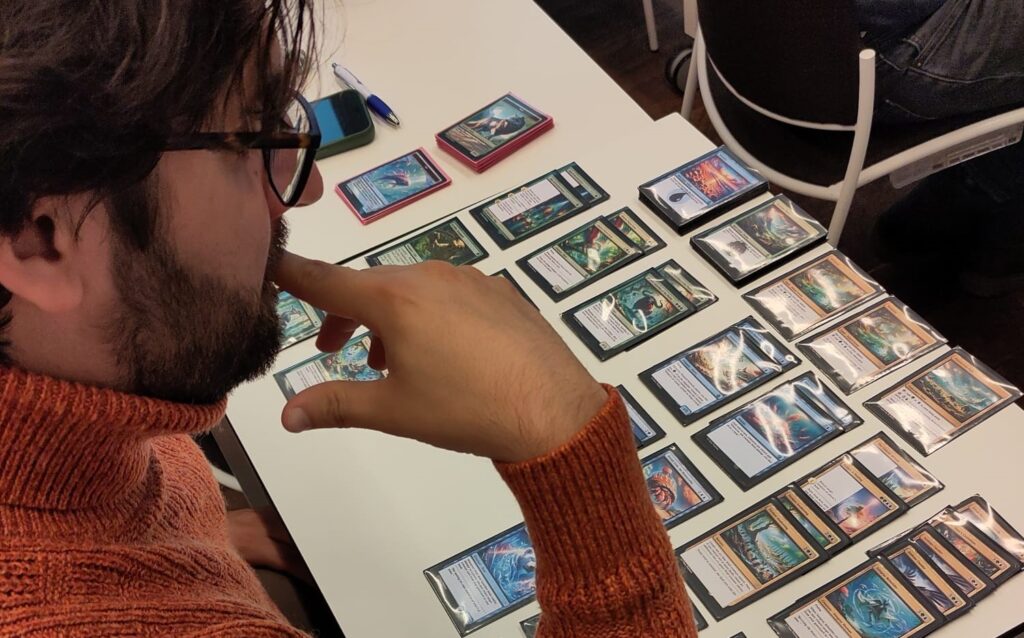
In the ongoing development of this franchise hacking initiative, we aim to refine the workflow and broaden Magic: the Gathering’s thematic horizons. Collaboration with domain experts in MtG, educational studies, and teaching is key as we translate complex environmental phenomena into the game’s accessible language and investigate the pedagogical effectiveness of this method in various learning contexts. Our collective goal is to refine and validate the educational value of franchise hacking within diverse educational settings.
